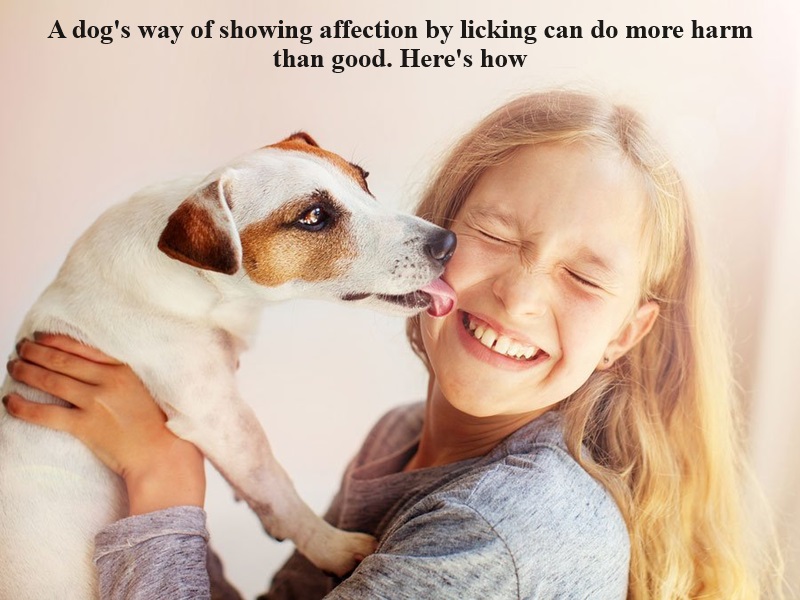
The act of dogs showering their owners with affectionate licks is often perceived as heartwarming by many dog owners, who may either welcome or discourage such displays. However, Jacqueline Boyd, a senior lecturer in Animal Science at Nottingham Trent University, warns in an article published in The Conversation that while these gestures may seem endearing, they can pose potential health risks to the dog owners.
Licking serves as a significant form of communication for dogs. When a dog repetitively licks its mouth, it may indicate underlying stress or fear. Moreover, dogs may lick their lips in response to their owner’s emotional state, exhibiting increased lip-licking when faced with angry expressions.
While nearly all dog owners report being licked on their face by their pets, individuals who are immunocompromised, have open wounds, or possess dogs with a history of ingesting feces are advised to refrain from allowing their dogs to lick their faces. Boyd explains that although a dog’s mouth harbors microorganisms that typically pose low risk to humans, there are rare instances where certain infections can be transmitted from dogs to humans through bites, licks, or scratches.
For instance, Capnocytophaga canimorsus, a bacterium present in the mouths of approximately 75% of healthy dogs and cats, can lead to life-threatening sepsis. Similarly, other microbes like Pasteurella multocida can also be transmitted through contact with dog saliva, potentially resulting in meningitis.
The emergence of antibiotic resistance poses a global health concern, with canine saliva serving as a potential reservoir for bacteria carrying antibiotic-resistant genes. A German study conducted in 2023 highlighted the possibility of multidrug-resistant organism transmission between companion animals and their owners, albeit identifying only a limited number of cases.
While animal saliva has been historically used for wound healing, the efficacy of allowing animals, particularly dogs, to lick wounds remains unsubstantiated by robust evidence. Despite the positive impact that owning a dog may have on one’s mental well-being, permitting animals to lick open wounds can elevate the risk of infection for the owner.

Post Your Comments